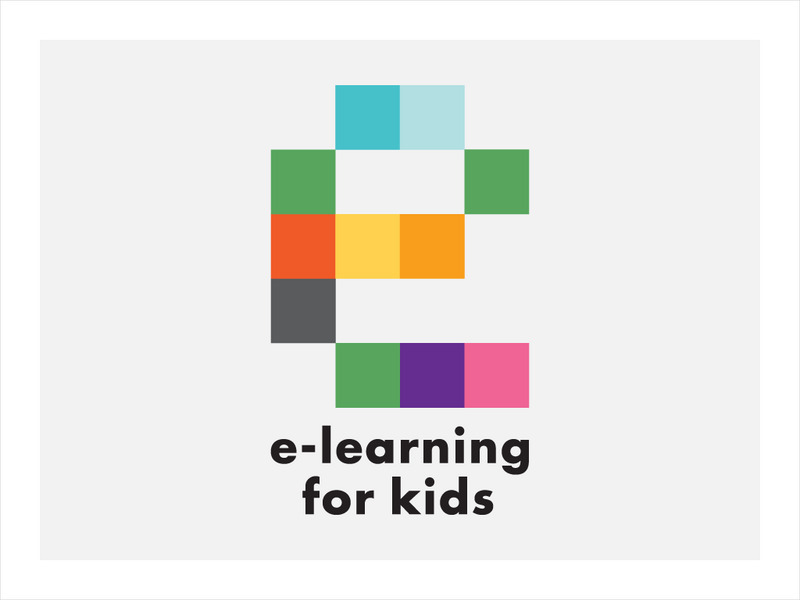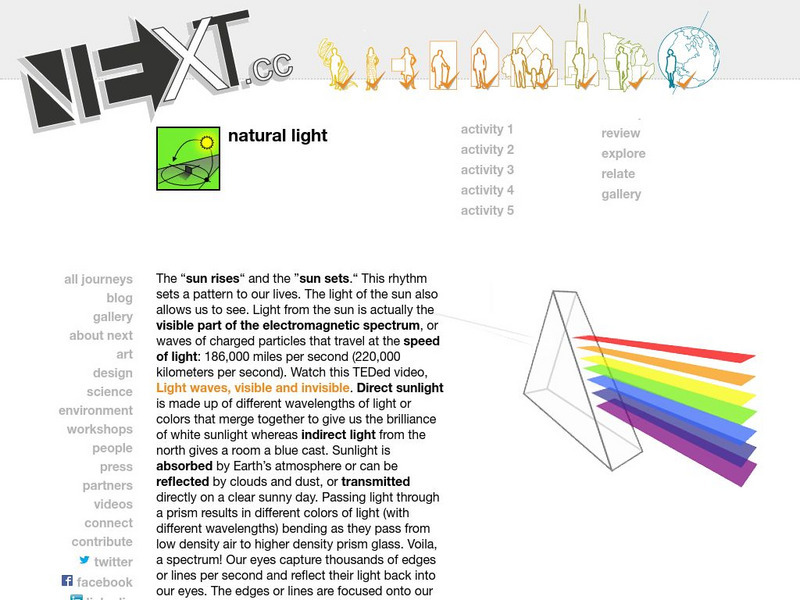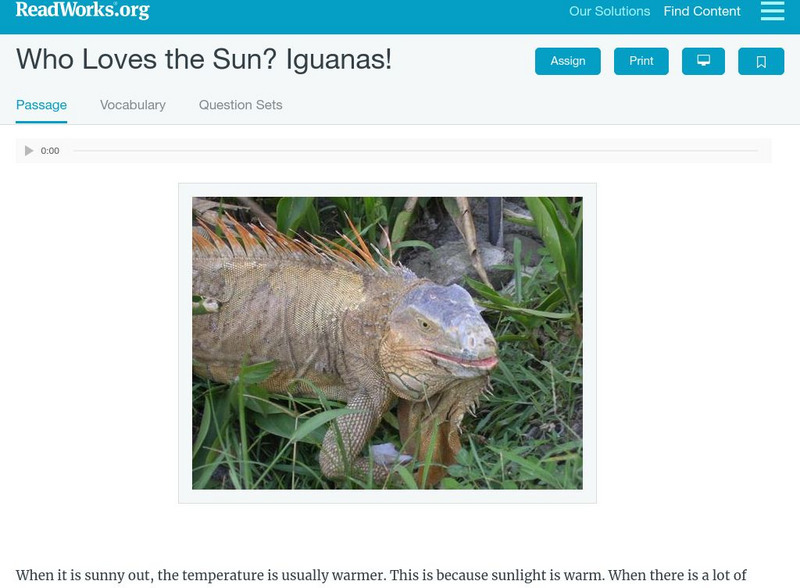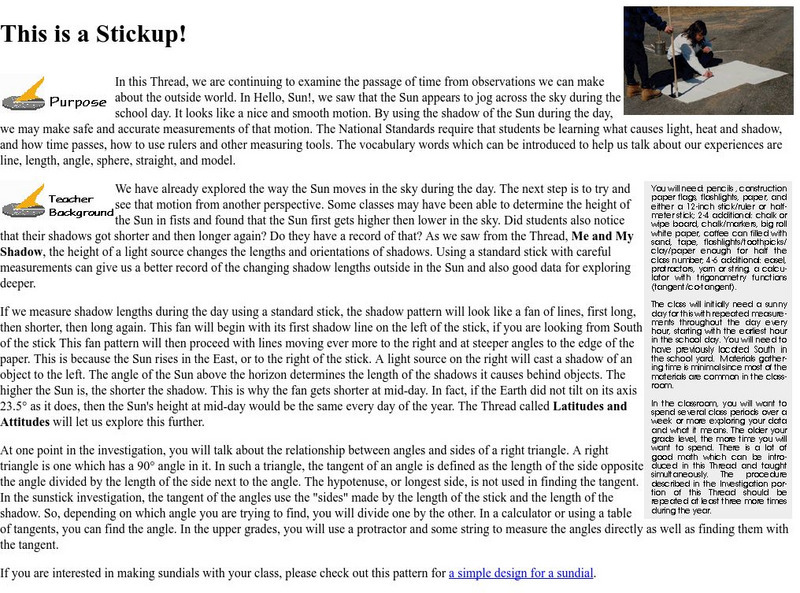Utah Education Network
Uen: Sunlight Necklaces
Create living necklaces to explore the power of sunlight.
Michigan Reach Out
Michigan Reach Out: Do Plants Need Sunlight?
Do plants need sunlight? What happens to plants if they do not get sunlight? Students will act like scientists in order to answer these questions. A scientist takes questions like this and then conducts an experiment to see what really...
Utah Education Network
Uen: Trb 3:5 Investigation 3 It's Hot
Activity helps to understand the effect of sunlight on the earth.
University Corporation for Atmospheric Research
Ucar: Cycles of the Earth System: Earth's Energy Cycle: Albedo
Students experiment and observe how the color of materials that cover the Earth affects the amounts of sunlight our planet absorbs.
Concord Consortium
Concord Consortium: Greenhouse Effect in a Greenhouse
In this activity, you will use a temperature sensor to relate changes in sunlight to the temperature of the air trapped in a container.
E-learning for Kids
E Learning for Kids: Science: Scotland: How Are Shadows Formed?
Join James, as he tries to make a dog appear on the wall by using only his hands. Find out how he does this.
E-learning for Kids
E Learning for Kids: Science: Scotland: Why Do Shadows Change During the Day?
William is a Scottish boy who is learning about the sun and how it casts shadows. Try to help him find out.
Environmental Education for Kids
Eek!: Evergreens
Site chronicles Wisconsin's Evergreen and Conifer trees. There are descriptions of the various tree types. Additionally, site details the uses of these trees in nature. Ideal for grades 4-8.
Next.cc
Next: Natural Light
Learn why natural light is and why it is important by completing these five activities. Click on one of the many links provided for further information.
Exploratorium
Exploratorium: Science Snacks: Solar Brightness
Want to know how bright the sun is? In this lesson plan, students construct a photometer to be used in determining the brightness of the sun.
Curated OER
Kids Health: Sun Smarts
Sunburn isn't just painful, it's dangerous. Learn about the connection between sun exposure and skin cancer, and learn how treat sunburn. Also, learn how to prevent getting sunburn with three simple tips. Use the links on this page to...
Curated OER
Kids Health: Sun Safety
Learn why the Sun keeps us healthy, and also, learn how the Sun can harm our skin, eyes, and immune system. Read about the dangers associated with the Sun's ultraviolet rays, and read tips to help you stay safe when outside in the summer...
Read Works
Read Works: Miss Johnson's Plant Experiment
[Free Registration/Login Required] A literary text about a teacher who does an experiment to teach her students that plants need sunlight. A question sheet is available to help students build skills in reading comprehension.
Read Works
Read Works: Who Loves the Sun? Iguanas!
[Free Registration/Login Required] An informational text about iguanas and where they live. A question sheet is available to help students build skills in reading comprehension.
CK-12 Foundation
Ck 12: Physical Science: Light
[Free Registration/Login may be required to access all resource tools.] Visible light and the different waves that make it up, infrared light and ultraviolet light.
Annenberg Foundation
Annenberg Learner: Journey North: Judy Brophy: The Sun's Daily Cycle
Impressive animated slideshow presentation on the sun's daily cycle and how the sunlight changes hour by hour over the course of a day. Includes a teacher guide with lesson plan ideas and activities.
Harvard University
University of Harvard: This Is a Stickup!
Students are taught how to make a sundial. The relationship between angles and the sides of a right triangle are explored. Great lesson plan ideas with plenty of background information. The lesson plan is adapted for grade levels k-6...
Oklahoma Mesonet
Oklahoma Climatological Survey: Earth's Energy Budget
This 2-part resource details how the Earth absorbs just enough energy from the Sun to sustain life. Content explores incoming solar radiation and outgoing terrestrial radiation.
HotChalk
Hot Chalk: Lesson Plans Page: Probing Into Plant Parts
In this lesson plan students will obtain a better understanding of a plant's needs, and how the various parts of the organism help it to meet its needs. Students will understand how some plants are alike and different.
Read Works
Read Works: Sunlight in the Night
[Free Registration/Login Required] An informational text about moonlight and where it comes from. A question sheet is available to help students build skills in reading comprehension.
Science Made Simple
Science Made Simple: Why Leaves Change Color
This is a site that offers answers to some often hard to answer questions such as why do leaves change colors. Provides an easy to understand answer to the question along with a section that students can read on their own, a puzzle,...
University Corporation for Atmospheric Research
Ucar: How Weather Affects Air Quality
How is air pollution affected by weather? Some types of pollution are worse in the summer heat, while others are worse in cold winter weather.
Other
Escolar.com: La Luz
A brief summary and illustrations of light and how the lights rays are reflected and bent.

















